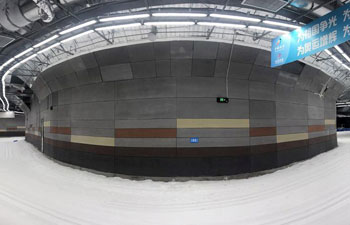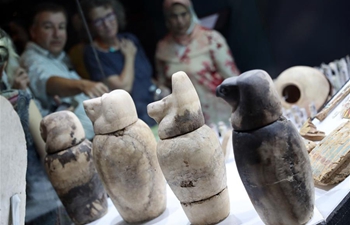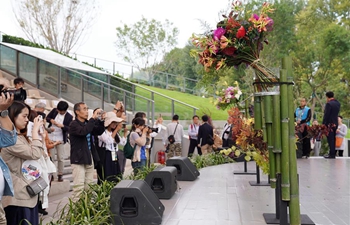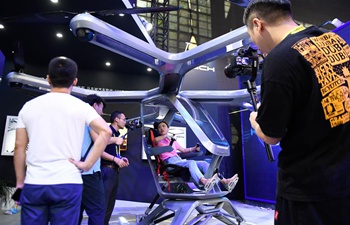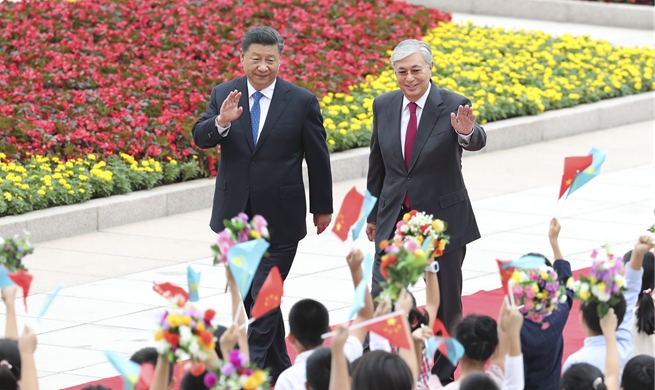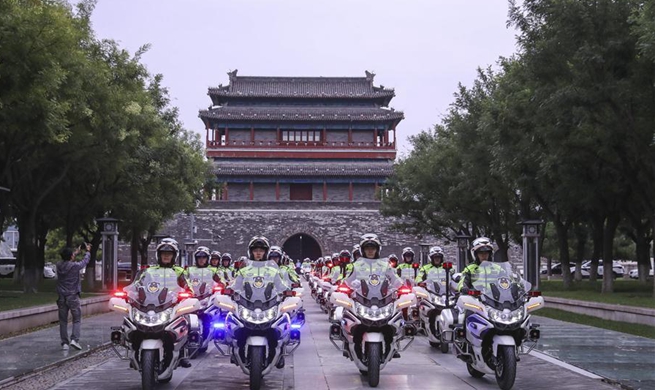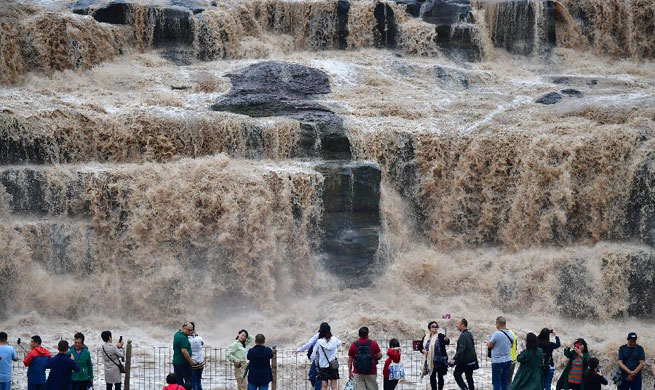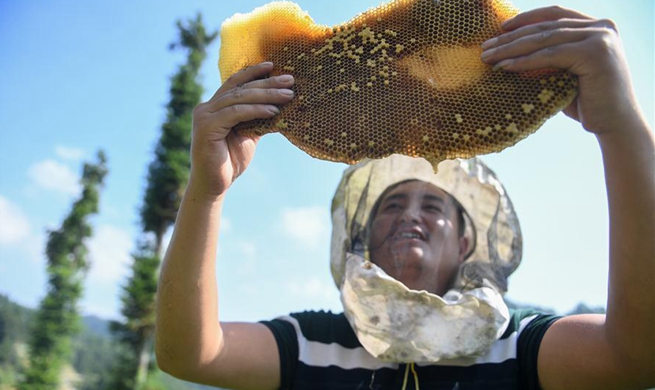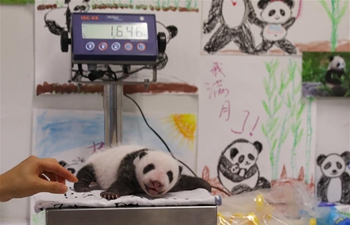TOKYO, Sept. 12 (Xinhua) -- Hundreds of thousands of households near Tokyo are still suffering from power outages amid intensely hot and humid conditions, as Tokyo Electric Power Company Holdings Inc. (TEPCO) struggles to restore power four days after the damage caused by Typhoon Faxai.
TEPCO said in the hardest-hit region of Chiba Prefecture, where Faxai made landfall early Monday, 640,000 homes were initially left without electricity.
As of 3:30 p.m. local time on Thursday, more than 310,000 were still waiting for power to be restored, local media reported.
TEPCO said that it had hoped to restore power to areas suffering from blackouts on Wednesday, but its efforts to do so had been hampered by power lines being damaged more than initially expected, with efforts to restore power hindered by fallen trees and poor visibility due to thunder storms and gray skies, the embattled utility said.
"We would like TEPCO to make further efforts in resolving the power outage and sharing a more accurate outlook," Chiba Gov. Kensaku Morita said.
TEPCO said it had deployed 11,000 workers to try and get the power up and running, some of whom had been drafted in from other utility companies to assist in restoring power.
The prolonged blackout may have resulted in the deaths of at least two people, local media reported a day earlier, as a 93-year-old woman and a 65-year-old man died of suspected heatstroke in their homes when the mercury in Chiba topped 35 degrees Celsius.
The health ministry also said that as many as 62 hospitals in the affected areas might have be suffering from power outages as of Wednesday, with the ministry only able to confirm that 37 of them were able to provide treatment for patients.
Officials were also trying to determine if a male patient died in one of the hospitals in Chiba due to the blackout knocking out medical devices such as respirators and dialysis machines.
Japan's top government spokesperson also took aim at TEPCO on Thursday and suggested the government is vexed at the utility's lack of effort and progress.
"We need to strictly review the power cuts and recovery processes and make corrections," Chief Cabinet Secretary Yoshihide Suga said.
As many as 20,000 households are also still without running water in some affected areas, as the mercury soared above 30 degrees Celsius on Thursday, forcing some residents to line up for emergency water supplies being delivered by Self-Defense Force vehicles.
Relief goods donated by regular citizens from across Japan have been making their way to some of the hardest-hit areas, with typhoon-ravaged Kyonan town distributing parcels containing bottles of water, instant noodles, toilet paper and other essential items at an elementary school gymnasium on Thursday, local media reports said.
Faxai, the season's 15th typhoon and the ninth to make landfall in Chiba since record keeping began, dumped more than 440 millimeters of rainfall on the city of Izu in Shizuoka Prefecture, the weather agency said.
It wreaked havoc on the Tokyo metropolitan area after making landfall east of Tokyo at around 5 a.m. on Monday, killing at least three people and causing major disruption to transportation networks with train services being suspended and flights being halted as the capital and surrounding areas were lashed by torrential rain and battered by gusty winds.
The Japan Atomic Energy Agency said a disused cooling tower at a facility in Ibaraki Prefecture collapsed in the morning, although no radioactive materials were dispersed.


